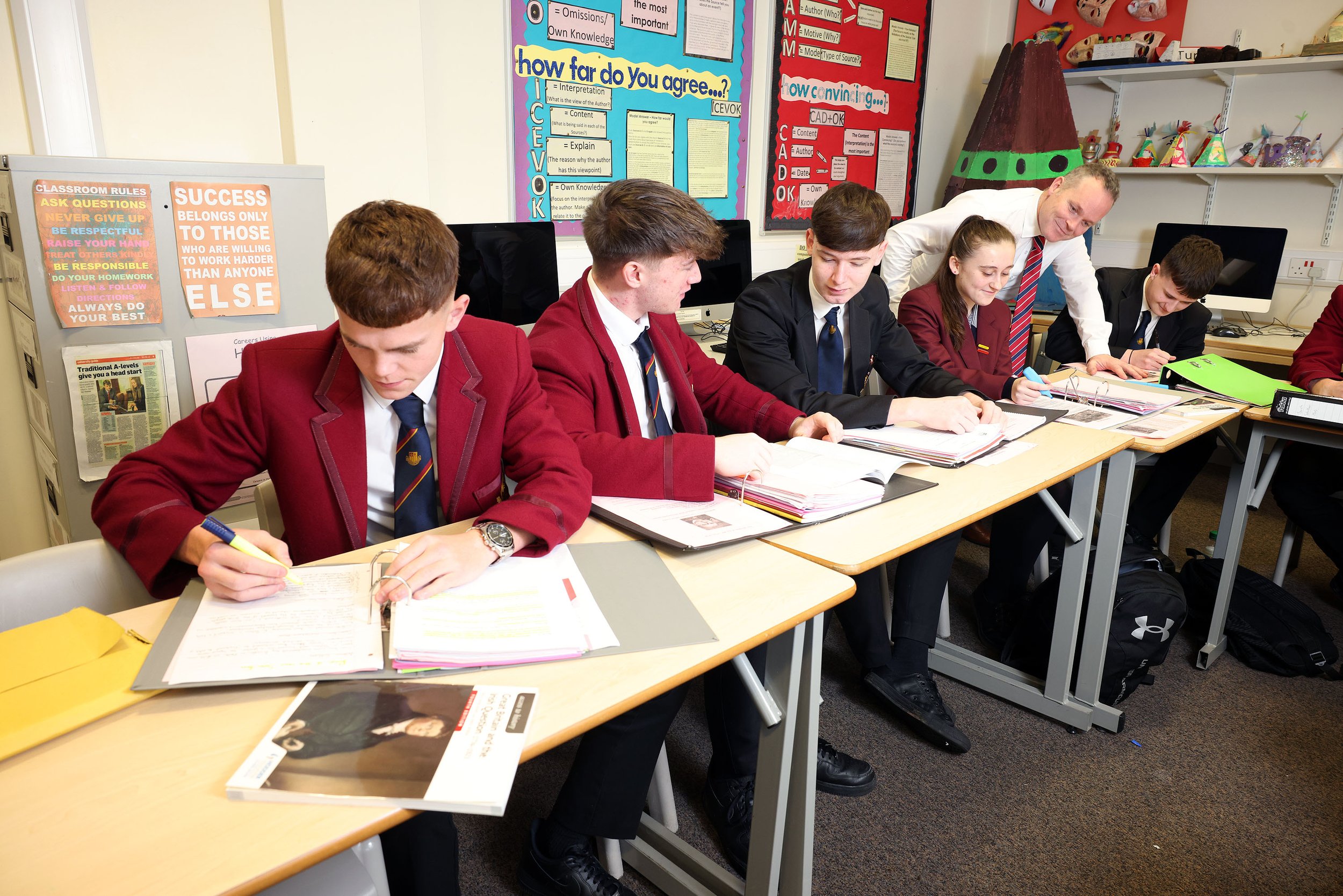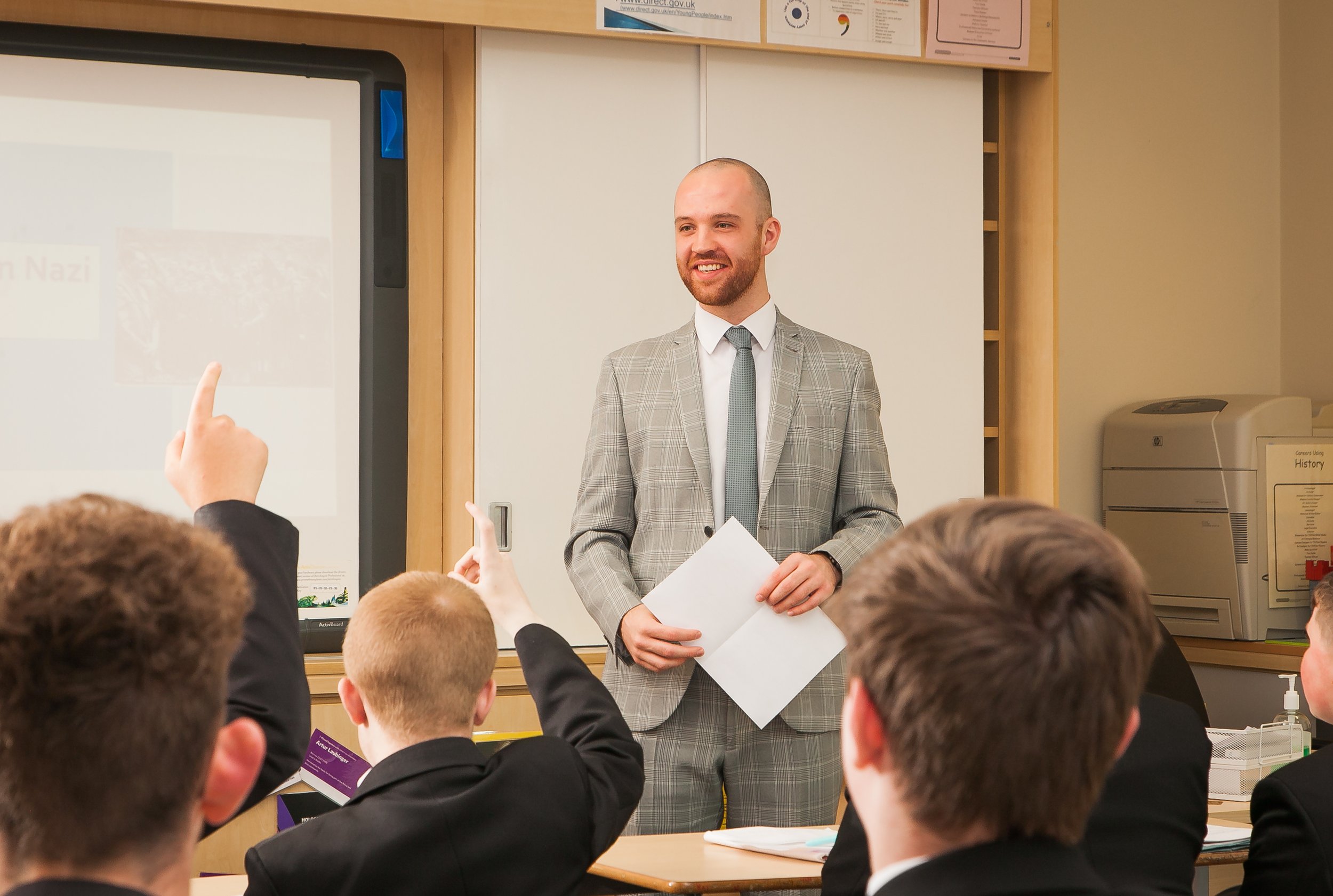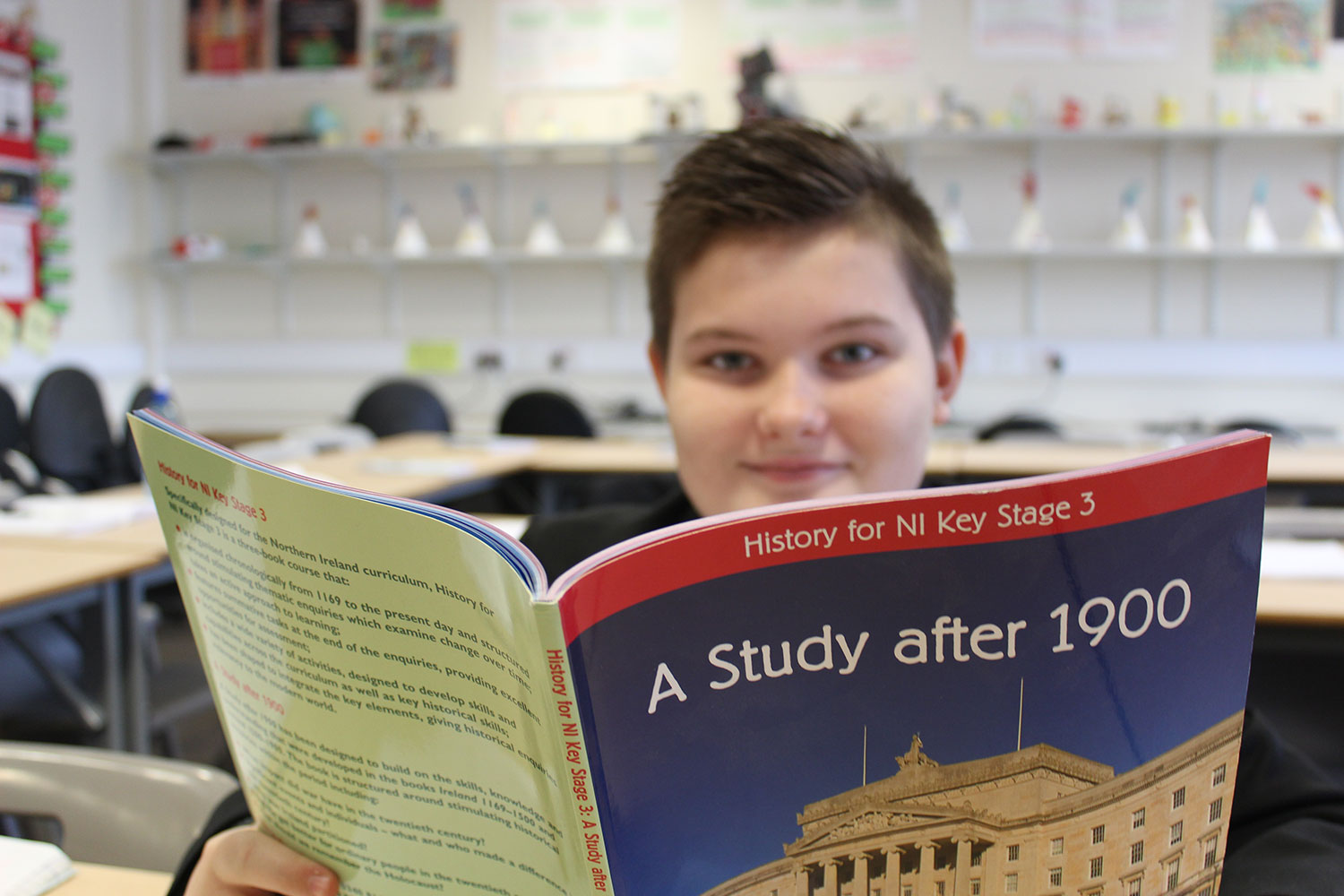History
Aims
To enable pupils to appreciate their identity through the study of local and regional history, with emphasis on national values, heritage and cultural diversity.
To enable pupils to develop the skills of enquiry, necessary to study sources.
To enable pupils to explain past events and their consequences.
To foster pupils’ ability to look at all perspectives.
Pupils will be encouraged to develop skills that will equip them for future employment.
Staff
Mrs McDowell
Mr Carlisle
Mrs Montgomery
Mr McClelland
Mr Shearer
Mr Dickey
Mr Reid
Key Stage 3
All pupils study History in KS3. In Year 8, pupils study the Norman Conquest, followed by the Reformation and the Tudors, the Plantations and the Native Americans.
Year 9 begins with the study of the Suffragettes and World War One, the Causes and Consequences of Partition, and this is followed by an historical investigation of the assassination of JFK.
Year 10 Units consists of the study of the USA and Civil Rights, followed by the Troubles in N. Ireland and the Holocaust.
Key Stage 4
GCSE - CCEA, 100% Exam
Year 11 (Paper 1) - 60%
N Ireland & It’s Neighbours 1965-1998
• Civil Rights
• Violence in 1969
• Internment and Bloody Sunday
• Hunger Strikes
• Downing Street Declaration
• Good Friday Agreement
Germany 1933-45
• Hitler takes control
• Life for workers, women and the young
• Germany at war
Year 12 (Paper 2) - 40%
International Relations 1945-2003
• Communism and Capitalism
• Berlin, Hungary, Czechoslovakia
• Korean War, Vietnam War, Cuban Missile crisis
• War in Afghanistan and Iraq
Post 16
GCE A-Level - CCEA, 100% exam:
AS Modules - 40%
1. Nazis in Germany 1919 - 1945 20%
2. Russia 1914 - 1941 20%
A2 Modules - 60%
1. Clash of Ideologies in Europe 1900 - 2000 20%
2. Partition of Ireland 1900 - 1925 40%
Skills Developed
Analytical thinking
Communication skills
Managing information
Self-management
Thinking, problem-solving and decision-making skills
Working with others
Careers
The study of History leads to a range of possible career options. History develops pupils’ critical, analytical thinking and communication skills, which many careers require.



